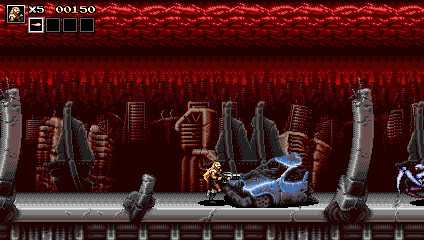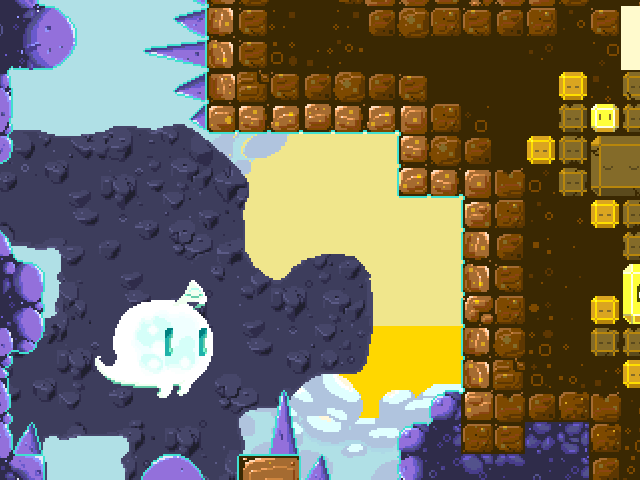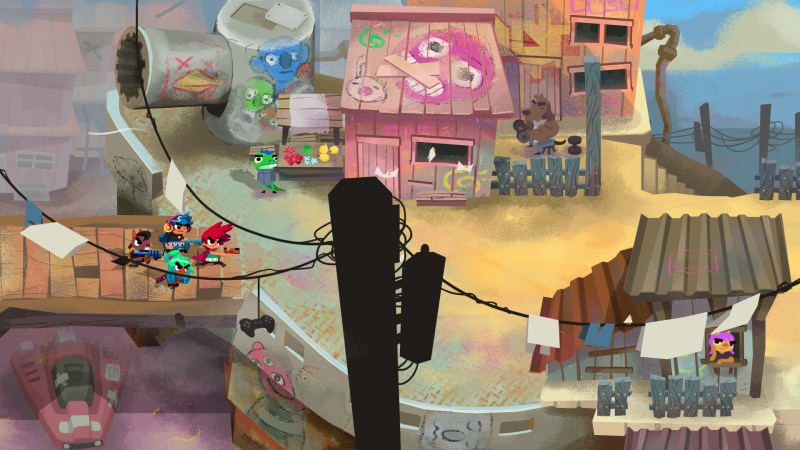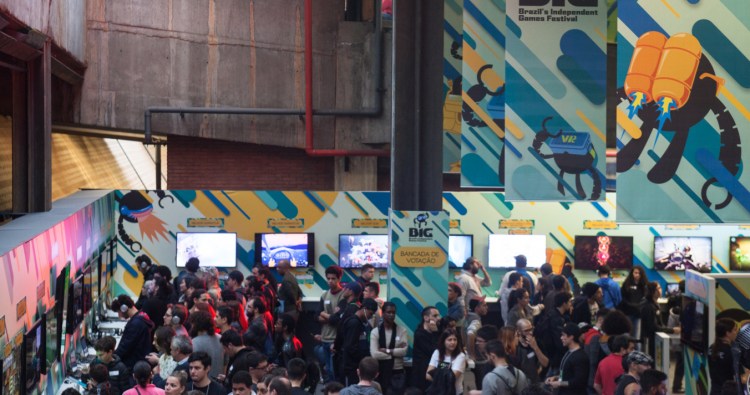Last week, Brazilian indie developers released an open letter directed toward Brazil’s Independent Games (BIG) Festival, one of the largest events of its kind in Latin America. The letter collected over 200 signatures and was a collaborative effort to detail the criticisms and requests of the local community. BIG responded in a statement, and it hosted a public meeting to discuss the issues in person yesterday at the Centro Cultural São Paulo.
The open letter criticized aspects of the festival, such as the judging process for its awards, a perceived lack of transparency, and no travel funds for Brazilian developers. BIG takes place each year in São Paulo, which can be quite a trek for those who live in other parts of the country. In its response, the festival addressed the criticisms point-by-point. And BIG CEO Gustavo Steinberg says that he’s looking forward to talking with the developers face-to-face, though he’s perplexed why they used an open letter to communicate their concerns.
According to Steinberg, the organization has a few different channels for communication on its social media pages as well as on its site. During BIG Festival, it hosts the monthly developer meetup SPIN. It also has a spokeperson who’s responsible for interfacing directly with local developers — though they were stymied somewhat because they weren’t accepted into Boteco Gamer, a key Facebook group where Brazilian developers discuss industry happenings. This may be where some of the communication breakdown happened.
“I learned today that he asked to join that group three months ago, and he wasn’t accepted,” said Steinberg in a call with GamesBeat. “Of course I should have realized that sooner, but I didn’t. He’s been doing all of his tasks as the head of communication with the indies, but he was concentrating on the applications and submissions to the festival. Entries are still open. He’s trying to respond to all the questions developers have and everything. I totally didn’t see that he was not at Boteco Gamer. I think that’s our fault. It’s a problem. But that doesn’t mean we’re not in touch with the indie community.”
Indie studio Rogue Snail founder Mark Venturelli says that, given the number of signatures, it’s clear that a lot of developers feel like they aren’t being heard. He also thinks that the letter was “too inflammatory/confrontational in tone,” and though he agrees with some of the points, he also believes that overall the event is doing a good job. It just needs some guidance.
“The people who I know in the organization are great people who want nothing but to grow the Brazilian scene, and they are usually willing to listen and to change,” said Venturelli in an email to GamesBeat. “They are not developers themselves, however — they hail from government agencies and associations that aim to improve the economic impact that game development has in the country. Therefore, there are cultural and knowledge gaps to be filled between the development community and the event organization.”
However, Lostalloy cofounder Clarissa Picolo, one of the developers who signed the letter, says that the tone isn’t the point. “Even the people who wrote the letter agree that the tone is a bit harsh,” she said to GamesBeat in a phone call. The letter was quickly written in an afternoon by a number of people at once, so it was a process that perhaps valued speed and not tact. And Picolo suggests that they chose such a public method because they want to effect change sooner rather than later. If they wait too long to give feedback, the event might crystallize into its final form. But now, with BIG going on its sixth year, it’s still a young festival that’s open to change.
“I think that the reason why people decided to voice their opinion is because they may be thinking that if they don’t do that early on, what may happen to this kind of event?” said Picolo. “What may happen to this organization, to the festival? Something that’s happened to other things here in the country. They end up concentrated in the hands and in the interests of very few people.”
What is indie?

Above: Blazing Chrome, an old school run-‘n’-gun co-op from Brazilian indie studio JoyMasher.
A recurring question pops up in the open letter as well as BIG’s response: What exactly counts as “indie”?
The definition of an independent game is malleable, particularly in Brazil’s context where developers might find themselves relying on government or institutional grants. But even outside of Brazil, the indie category is applied liberally to one-person games as well as to projects by developers who have worked on triple-A titles.
Some people argue that the content of the game determines the “indie” categorization — titles that take risks and that don’t cater to a mass audience. But no one would argue that Stardew Valley, which was a labor of love by solo dev ConcernedApe, isn’t indie despite its wide appeal and millions of copies sold.
Others say that an indie game must be self-published, but to counter that, there’s a whole array of publishers like Finji, Devolver Digital, and Raw Fury that specialize in publishing indies. Finji’s most recent title, Night in the Woods, is a beloved indie from a small team with a Kickstarter campaign. So this definition also seems shaky — especially considering that it leaves out developers from outside of the U.S. and Europe who rely on publishers to reach markets and help get the word out about their games.
The open letter questions whether or not funding might make an impact in how “indie” something is, though. “How will grant-supported games be treated [by the festival] since they cannot be compared to games made by completely independent studios?” it asked.
It’s one of the topics that both parties were gearing up to discuss at Wednesday’s public meeting, and Picolo says that it sparked quite a bit of debate within the community before that as well.
“This is difficult, because it raises concern not between developers and the organization of the festival. It raised concern among developers,” said Picolo. “What is independent? If this is a festival for independent developers, OK, who is an independent developer? Do you consider someone independent if they have a publisher? The ones that don’t have a publisher? The ones that receive government grants? People got a bit heated on Facebook over that discussion.”
“Regarding video games, we consider independent the projects that aren’t controlled by big platforms and consoles,” said BIG in its translated statement. “An independent game can be available on those platforms, but the rights over it must stay in the hands of the independent producers. There are huge variations inside this definition, going from 100 percent experimental games to market-oriented games.”
Coming up with a definition of indie might ease expectations between developers and the event. But BIG also emphasizes that its mission encompasses the entire games industry and so showcasing indie games is only part of what it’s trying to achieve. In its statement, it tries to convey those values to explain some of its decision-making.
“Let us also remember that advergames and outsourcing is of great importance to developers not only in the current scenario, but also historically, and for a long time it has been a predominant specialty in the country, boosting much of what we have in the market today,” said BIG’s statement. “The games with artistic and narrative value are reasons for celebration and admiration, but for us it is also important to the history of the industry and recognizes that above all, the development of games is also a market.”
Relevancy for students

Above: Lostalloy’s adorable Metroidvania Aftertile stars a ghost who can go through walls.
The great indie debate might not get resolved any time soon, but the festival has already made some moves to address another recurring concern. The Brazilian developers’ open letter brings up the question of students and new developers and how the event can accommodate that group of people.
JoyMasher cofounder Thais Weiller started the open letter, though after she opened the Google document, the community took over with writing and self-moderating the collaborative process. In additional to developing games, she also teaches a three-year game design and production course at Pontifical Catholic University of Rio de Janeiro. One of her primary concerns is how the festival can benefit students, whether that’s in the form of panels or a signal boost with a student showcase.
“[The letter] was open to edits and comments, and one female student made a very passionate comment about how she and her colleagues went to all BIG festivals since they started studying video games and how at first it looks like a magical and very interesting place,” said Weiller in a chat conversation with GamesBeat. “And how this image cracked when she couldn’t see herself or her friends there, not now and not in a close future. She said it is very discouraging to be one of the biggest part of the festival’s attendance (students) and still be completely ostracized by the curation of the games and talks. She said the only talk that felt interesting was full and they could not watch it.”
Picolo echoed these concerns, noting that while the festival is free, not everyone can attend the whole time because it occurs on weekdays. Students have limited schedules and often pick a few talks that they’d like to see. The issue, Picolo says, is that not all of these panels are relevant to developers and that some may have “misleading” titles and summaries.
“You go to a talk about animation. The theme is animation. They’re going to talk about how animation is important and so on,” said Picolo as an example. “But you get there and what you see is people advertising the products from their company. I’m not saying this is bad. It’s OK. We love seeing examples. We love seeing and hearing about success. But for someone who has a tight schedule, who studies and probably works, it would be better if the festival prioritized talks which are more general, more related to the process of development, and not necessarily exclusively based on things that are already finished, produced, and done.”
BIG pushed back on the criticism that the talks aren’t relevant to students. Last year, the event had 129 different panels, and Steinberg says that they have to balance the needs of the different demographics as well as those of the sponsors.
“[The talks are] something that’s always related to the industry, related to the needs of the community,” said Steinberg. “Again, we don’t try to hide it, but we do rely on sponsors. Sponsors like to talk about what they’re doing. I don’t see it as a problem. Again, it’s a small percentage of the sessions. We work with different parallel rooms. If you don’t want to see that, you can go see something else.”
In response to the community’s request to get more student games on display, though, Steinberg says that the organization has heard that feedback. It’s considering a way to have a space where student prototypes can be showcased. And this year, it incorporated a new student game category in its application and it’s considering implementing a “Best Debut” award.
Opening a dialogue

Above: Rogue Snail successfully raised funds on Kickstarter for its co-op shooter Relic Hunters Legend.
All of this back and forth between the developers and BIG might seem alarming because it’s taking place in public, but most people I talked to are optimistic. It’s a conversation geared toward making sure one of Latin America’s foremost gaming events represents the needs of its local community.
After BIG released its statement, the developers began working on another open letter. They copy and pasted the statement and commented on various sections. Picolo says that based on these comments (which are in Portuguese and haven’t yet been translated to English), the overall sentiment seems to be that it was a good reply.
“The attitude they have is, OK, cool, let’s talk now. Let’s start commenting on things. No bickering. There’s no poking at each other,” said Picolo. “People are getting to the point. Let’s do business. Which I think is really good, because people are interested in solving what they think is a problem instead of attacking. Somehow I got the impression that there would be people attacking each other, and this isn’t happening.”
“Nobody’s against anybody here. We just want to build something that works,” said Steinberg. “There are limitations for us. We cannot just say yes to everything, even if we’d like to. But I’m optimistic that on Wednesday we’re going to build something interesting out of this. It’s already something interesting. It’s good that there was a manifestation and that people were vividly defending their positions, because that means they’re interested in the event and worried about the event. I believe that’s a good thing.”
The festival is also making some moves to address other points brought up in the open letter, like releasing the names of the jury members who are responsible for selecting award-winning games. It asked for further explanation on other feedback: “We would like to get a better explanation on what is perceived as ‘biased selection,’ so we can see what else can be done to answer this question,” said the statement.
The exchange between BIG and the developers is fascinating because it isn’t developers raising issues with an established event like PAX or E3. Instead, it’s a conversation happening in an industry that’s still growing, with new developers and a new event. It’s being built from the ground up, and members of the community are keeping the pressure on the organizers to keep it relevant.
Picolo says that normally developers talk among themselves in local groups, but the open letter brought everyone across the country onto the same page. And their concerns are timely because of what’s happening in Brazil politically speaking.
“Given our country’s history of manipulation, of corporations hogging everything for themselves—an ex-president was arrested a couple of weeks ago. It’s a completely founded concern [about BIG],” said Picolo. “I think our community of game developers is very—they have strong opinions, and they voice those opinions. It’s good, because they communicate with each other. But I think what happened is it needed a larger communication. That’s what this letter was about.”
IndieBeat is GamesBeat reporter Stephanie Chan’s weekly column on indie projects. If you’d like to pitch a project or just say hi, you can reach her at stephanie@venturebeat.com.

